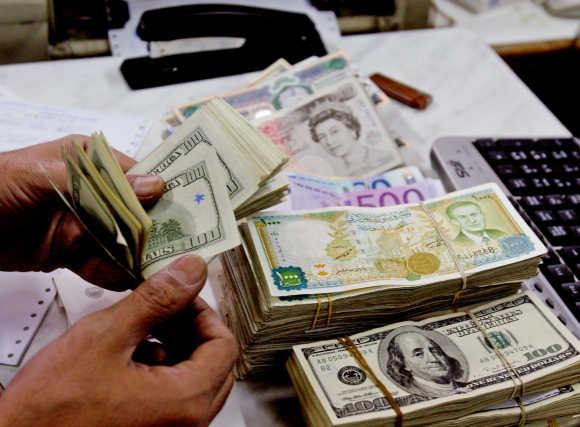The Supreme Court said on Wednesday that money laundering is a "heinous" crime which not only affects the social and economic fabric of a nation but also tends to promote other serious offences like terrorism and drug trafficking.

It noted that the Prevention of Money Laundering Act (PMLA), 2002, is a special legislation to deal with activities having a transnational impact on financial systems of nations.
While upholding the validity of certain provisions of the PMLA, a bench headed by Justice A M Khanwilkar noted the law was enacted to address the urgent need for a comprehensive legislation to prevent money laundering and prosecute those indulging in activities related to the proceeds of crime.
"Considering the purposes and objects of the legislation in the form of the 2002 Act and the background in which it had been enacted owing to the commitment made to the international bodies and on their recommendations, it is plainly clear that it is a special legislation to deal with the subject of money laundering activities having transnational impact on the financial systems including sovereignty and integrity of the countries.
"This is not an ordinary offence," said the bench, also comprising Justices Dinesh Maheshwari and C T Ravikumar.
The bench said the need to have a comprehensive legislation for preventing money laundering was felt the world over owing to the "serious threat" to the financial systems of the countries, including to their integrity and sovereignty.
"The international community deliberated over the dispensation to be provided to address the serious threat posed by the process and activities connected with the proceeds of crime and integrating it with formal financial systems of the countries," it said.
The bench observed that Parliament enacted the PMLA as a result of international commitment to sternly deal with the menace of laundering of proceeds of crime having transnational consequences.
"It is crystal clear from the preamble that the Act has been enacted to prevent money laundering and to provide for confiscation of property derived from or involved in money laundering and for matters connected therewith or incidental thereto," it said.
The Act, it said, is neither a pure regulatory legislation nor a pure penal legislation but an amalgam of several facets essential to addressing the scourge of money laundering.
It said while considering the challenge to the relevant provisions of the Act, the court cannot be oblivious to the objects and reasons for enacting such a special legislation and the seriousness of the issues to be dealt with.
"Every provision in the 2002 Act will have to be given its due significance while keeping in mind the legislative intent for providing a special mechanism to deal with the scourge of money laundering recognised world over and with the need to deal with it sternly," it said.
The bench noted that as the world progressed to a digital age, criminals found new ways to launder and the law found new ways to tackle them.
"Today, as we will see, many of the amendments in the 2002 Act are in response to the recommendations of the FATF (Financial Action Task Force)," it said.
FATF is an intergovernmental organisation aimed at combating money laundering internationally.
The top court delivered its verdict on a clutch of petitions concerning the interpretation of certain provisions of the PMLA.
It upheld the ED's powers to arrest, attach property involved in money laundering, and conduct search and seizure under the PMLA.










 © 2025
© 2025